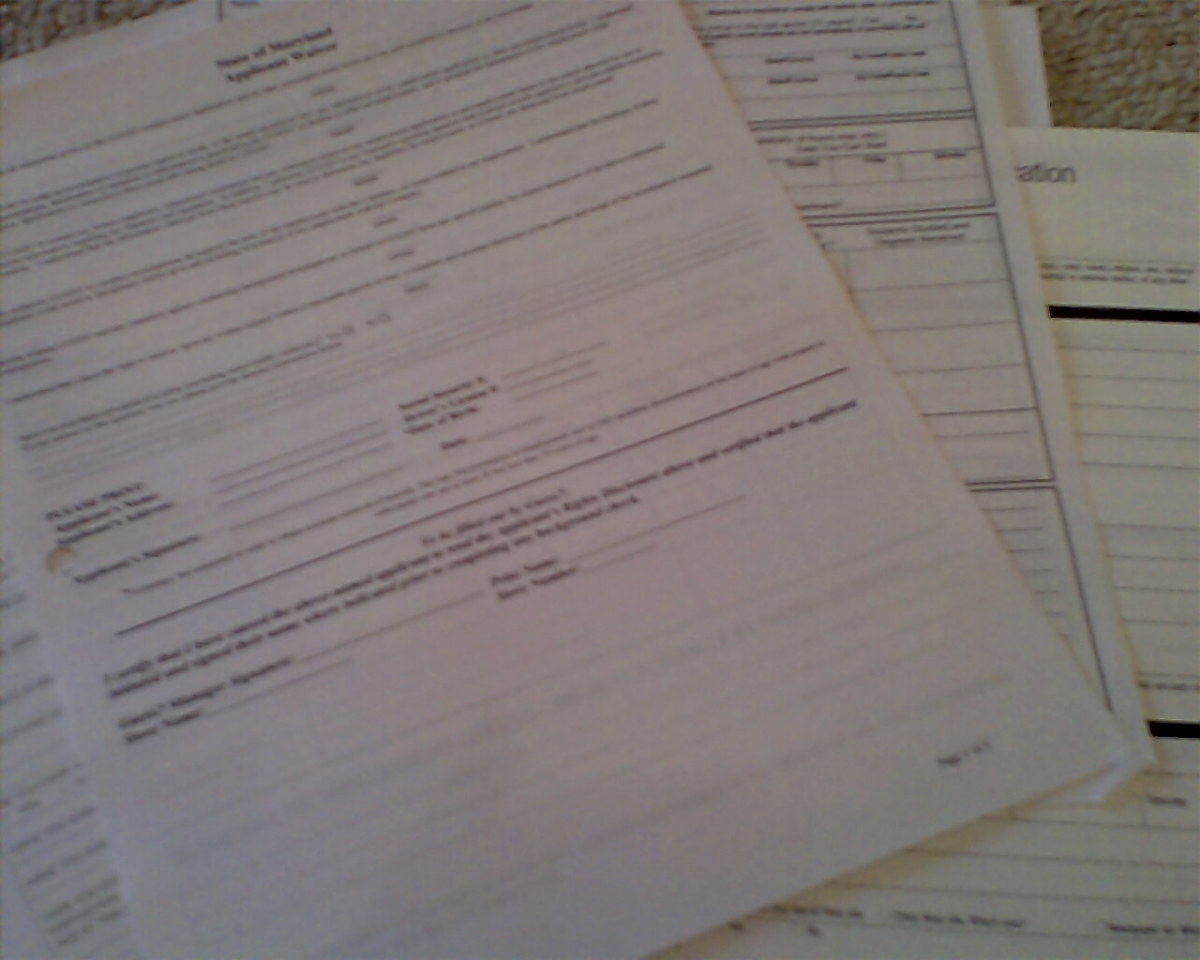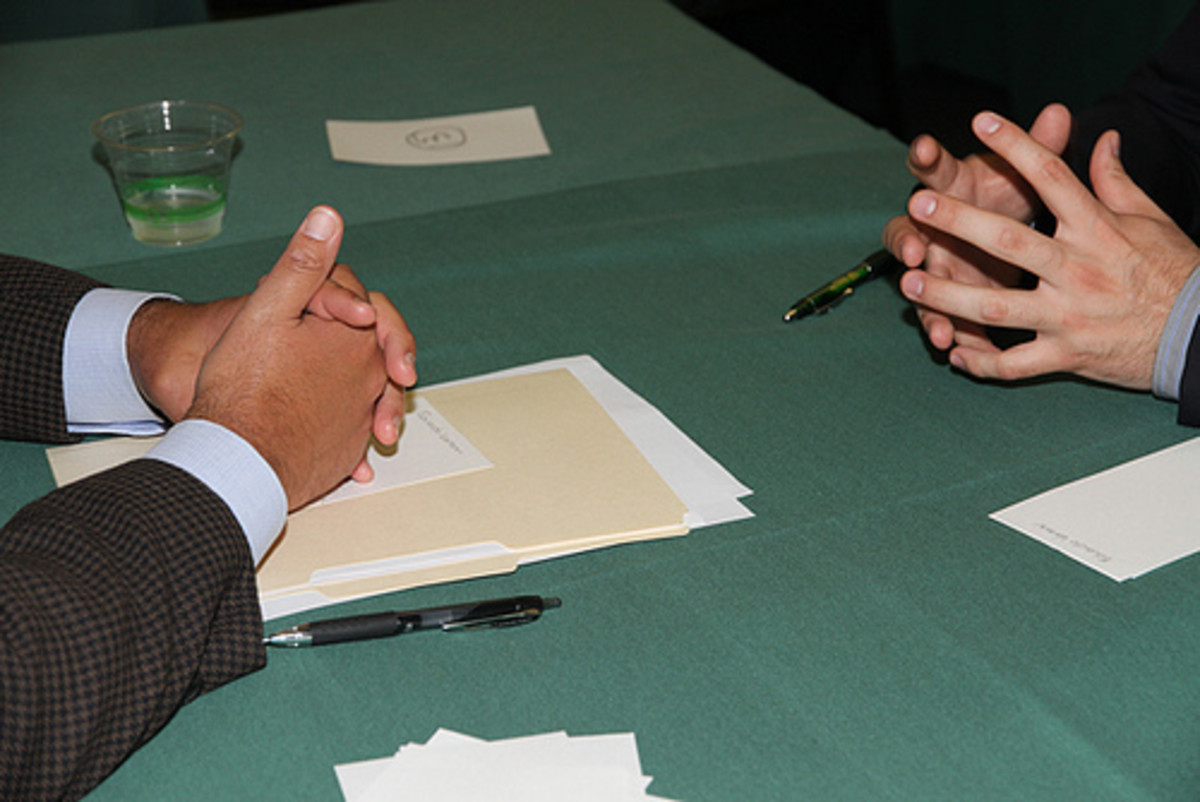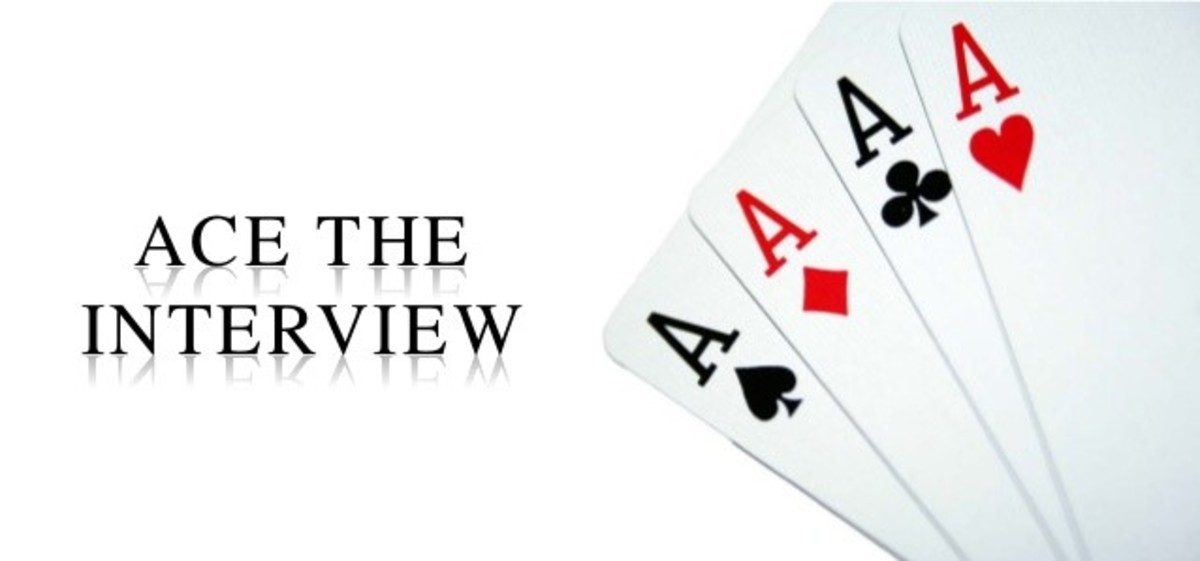- HubPages»
- Business and Employment»
- Employment & Jobs»
- Interviewing for a Job
Prepare for your Interview and get that Job
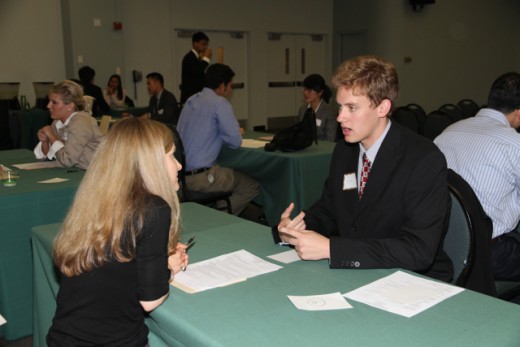
Get an Interview
There are many stages to go through when it comes to getting work. You have to start off by looking for vacancies, then filling out your application form and completing a resume, then getting yourself prepared if you actually get an interview.
It can be tough to find something in your field which fits your qualifications and skills. Looking in local newspapers, job centers or online are the best ways to see what is available. Writing out your curriculum vitae lays on the pressure to make you look like a good candidate as you have to make it interesting and relevant.
But when that letter comes through the post, or you get that email to tell you that you actually got an interview, what are you going to do?
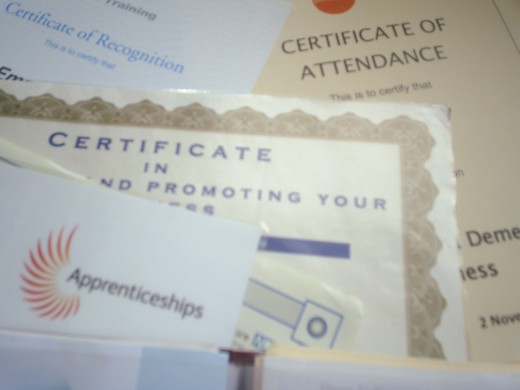
Congratulations and Don't Panic!
One million thoughts and emotions will go through you at this stage. You will feel chuffed to bits that you've been picked. You'll wonder who you're up against and what it was in your application form or CV that made them want to see you.
You will then look at the amount of time you have to prepare for your interview and start to feel nervous. You have some planning to do!
1. Who is the company you intend to work for?
If you sent out multiple application forms to various employers, you may not have a wide background knowledge of every company you applied for. But in order to impress, you need to know a bit about them.
Go back to the advert you saw and remind yourself again of what went through your mind when you became interested. Was it the job title, the salary, location or firm? This will jog your memory a bit.
Next do your research. Check the Internet for information. You will need to know the size of the company, how many sites they have, what they do, how long they have been around and who are the big bosses.
Having a basic idea of what you will be dealing with will help you (knowledge is key) and hopefully impress them. You need to show you are keen to work for this organization and have a lot of knowledge about them to prove that. You will also be in a good position when they fire questions at you about themselves.
2. What skills are required?
When you go back to the advertisement of the post, go through your application form again (if was done online you should still have access to it). Look at the job requirements and specifications and focus on what you have got in relation to this.
You should have already put your skills on your form but in your interview you will be asked again. Ensure to repeat what you put to make you sound genuine, then go into details further.
Talk briefly about past scenarios where you used these skills (at work or in college) and reiterate the qualifications you have which makes you fit for the post.
3. What are my experiences?
We all have experiences, even if this is the first job you are applying for. It's just realizing where we gained them.
When we look through job specs we automatically compare it to what we have done in past jobs. Sometimes we even forget that we've done half of what is required. So some thorough thinking is to be done to show where are when we were put to the test.
For example, if customer service is a must but you have never worked in customer services, think about situations where you have helped people formally.
In the public sector we deal with customers, if we answer telephone calls we are helping customers or clients or having a home based business or even a paper round includes dealing with people in the public.
Think of work experiences or projects done at college that have provided us with experience.
4. What else will I be asked?
It all depends on the kind of job you are going for. Some interviews are straight forward. You may have a small panel of people or two senior members of the team who will ask you about yourself, what skills you can offer, what will make you the best candidate and possibly some scenario questions.
Sometimes a basic test is carried out beforehand to show you are capable of what is needed. It may be a computer test, filling out a form, answering scenarios or a numeracy and literacy test. This might be done before the verbal interview or on a separate day. Candidates may have to sit a couple of exams before being narrowed down for the final interview.
Always come across as being warm and friendly but confident and professional. The best way to achieve this is to smile, give a firm hand shake whilst giving direct eye contact and sitting up straight on the chair with uncrossed legs.
5. How should I dress?
This can be a difficult choice for anyone. Choosing the right thing to wear is vital as this is the first impression you are going to give.
Men should attend an interview wearing a suit. This should include a shirt and tie carefully chosen (don't choose crazy miss - matched colors or cartoon characters, but at the same time reflect some of your personality with a bit of detail), matching trousers and jacket and smart shoes or boots. Ensure your suit has been dry cleaned, shirt is ironed and your shoes are polished.
Get a haircut if needed before your interview and style to show you have made an effort. Give yourself a decent shave or trim your beard / moustache to look tidy, and always trim your fingernails. These are the small details which will get noticed.
Ladies have the option of going for a trouser suit, smart dress or pinafore or skirt and jacket. The idea is to remember to impress your potential boss and show them how smart you are. Evening wear, low cut tops, short skirts are a definite no no.
If you opt for a suit, think about the top you will wear underneath. A smart but modern blouse is safe but make sure it has some detail or subtle color to show you are a bit different. Alternatively buy a flattering top which works well and stands you out in the crowd.
If you want to wear a dress make it smart and below the knee. Summer or maxi dresses are too casual.
Make sure your shoes are sensible. Avoid huge stiletto heels, knee high boots or flimsy sandals.
Again, go looking clean and tidy. Tie back long hair or style it so it looks shiny and controlled. Don't wear layers of thick makeup, bright pink nail varnish or go mad with the heavy perfume.
If your interview is for a more casual job such as a part time bar tender, hotel maid or cleaner, still dress well. Wear smart trousers or skirt.
Men should wear a shirt but leave the jacket and tie and women could wear a nice top or smart cardigan rather than a jacket.
6. What kind of questions do I need to ask?
At the end of an interview you will always be given the option to ask any questions. While you might be relieved that the grilling is over or feel too flustered that you feel like declining, it is always in your best favor to go prepared.
Have some basic questions in your mind of what you want to know. It could be anything from holidays and entitlements to working overtime. But bear in mind that some of these things may get covered throughout the interview. If that happens, do not ask the question again at the end. You may feel better for asking something, but the panel will just think you haven't been paying attention.
It is a good idea to have slightly different questions to ask, again to make you stand out. Don't ask anything confusing or anything which make you look smug. But simple questions such as:
- Why did this post become available?
- What courses will be offered in this employment?
- How would you describe a typical day here?
- What are the companies plans for the future?
- Will there be future opportunities for promotion?
Try to get into a bit of a conversation when you ask questions. This then leads to more relevant questions (you might want to know what computer systems are used, or how many people you will be working with) and you will also gain a rapport with them. If your face fits, you stand a good chance.
What not to do in or before an interview
- Sit down before you are asked
- Forget to take a shower or a bath
- Be late (always turn up 15 minutes early)
- Have negative body language (folded arms/no eye contact/fidget/forgetting to smile)
- Go unprepared
- Forget to check the location of the interview (it might be different to where the job actually is)
- Wear strong perfume or aftershave
- Giggle
- Wear jeans or shorts
- Forget to take certificates or anything asked of you
- Forget to switch off your mobile phone
- Have piercings and tattoos on show
- Be coy and shy (remember, you are selling yourself!)
If you are unsure of anything before your interview, ring them! They will appreciate your honesty and ability to communicate.



